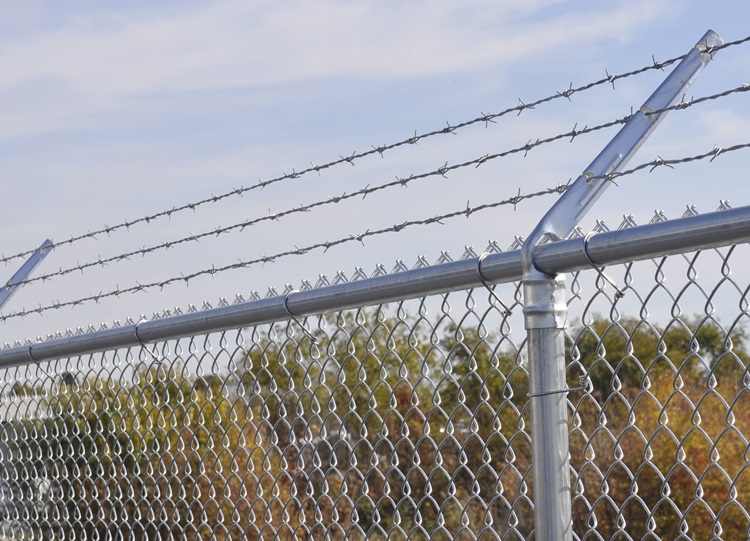Aug . 14, 2024 16:06 Back to list
CE Certified Expanded Metal Mesh for Plastering Applications and Construction Industry Use
CE Certification for Plaster Expanded Metal Mesh Ensuring Quality and Safety
In the realm of construction and building materials, the importance of quality and safety cannot be overstated. One of the products that have gained significant attention in this context is plaster expanded metal mesh. This versatile material is widely used in a variety of applications, including wall reinforcement and as a base for plastering. However, to ensure its reliability and safety, CE certification plays a crucial role.
What is Plaster Expanded Metal Mesh?
Plaster expanded metal mesh is a type of mesh made from sheets of metal that are slit and stretched into a specific pattern. The resulting mesh consists of a series of diamond-shaped openings that provide excellent surface area for plaster to adhere to. This enhances the structural integrity of plastered surfaces, making them more durable and resistant to cracking. The mesh is typically made from materials such as galvanized steel, stainless steel, or aluminum, each offering different levels of strength and corrosion resistance.
The Importance of CE Certification
CE certification is a mandatory conformity marking for certain products sold within the European Economic Area (EEA). It indicates that a product meets European health, safety, and environmental protection standards. For plaster expanded metal mesh, obtaining CE certification involves rigorous testing and compliance with various European standards.
ce certification plaster expanded metal mesh

1. Quality Assurance CE certification signifies that the plaster expanded metal mesh has been tested and verified for its quality. This ensures that the product can withstand the stress and strains it may encounter in construction environments. Buyers can trust that the mesh will perform as expected, minimizing the likelihood of premature failure.
2. Safety Compliance Construction materials must adhere to strict safety standards to protect workers and end-users. CE certification ensures that the plaster expanded metal mesh is safe to use, reducing the risk of injury or accidents on construction sites. This accreditation is particularly critical when the material is used in high-rises or commercial buildings.
3. Market Access CE marking grants manufacturers access to the European market. It ensures that products can be sold without additional testing or certification in other EU member states. For manufacturers of plaster expanded metal mesh, this certification is essential for competing effectively in the marketplace and expanding their reach to international customers.
4. Environmental Considerations The CE marking process also requires consideration of environmental safety. Manufacturers must demonstrate that their production processes are sustainable and that the materials used do not pose significant risks to the environment. This commitment to sustainability is increasingly important in today’s eco-conscious market.
Conclusion
In conclusion, the CE certification for plaster expanded metal mesh is a vital component in the construction industry. It ensures that the product meets high standards of quality, safety, and environmental responsibility. For builders, architects, and construction professionals, using CE-certified materials means confidence in the products they incorporate into their projects. As construction practices continue to evolve, the importance of certification will only grow, reinforcing the need for trusted and compliant building materials in creating safe and durable structures. In essence, CE certification not only enhances the reliability of plaster expanded metal mesh but also supports the integrity of the construction industry as a whole.
-
Hop Dipped Galvanized / PVC Coated Temporary Fence-Anping County Xingzhi Metal Wiremesh Products Co., Ltd.|Durable Temporary Fencing, Corrosion Resistant Solutions
NewsAug.03,2025
-
Hop Dipped Galvanized / PVC Coated Temporary Fence - Anping County Xingzhi Metal Wiremesh Products Co., Ltd|Durable Temporary Fencing Solutions&Customizable Security Systems
NewsAug.03,2025
-
Hop Dipped Galvanized / PVC Coated Temporary Fence - Anping County Xingzhi Metal Wiremesh Products Co., Ltd.|Corrosion Resistant&Modular Design
NewsAug.03,2025
-
Galvanized Iron Wire Anti Mosquito Window Screen Net | Durable
NewsAug.03,2025
-
Hop Dipped Galvanized/PVC Coated Temporary Fence-Anping County Xingzhi Metal Wiremesh Products Co.,Ltd|Durable Temporary Fencing Solutions&Customizable Construction Site Security
NewsAug.02,2025
-
Hop Dipped Galvanized/PVC Coated Temporary Fence - Anping County Xingzhi Metal Wiremesh Products Co., Ltd.
NewsAug.02,2025



